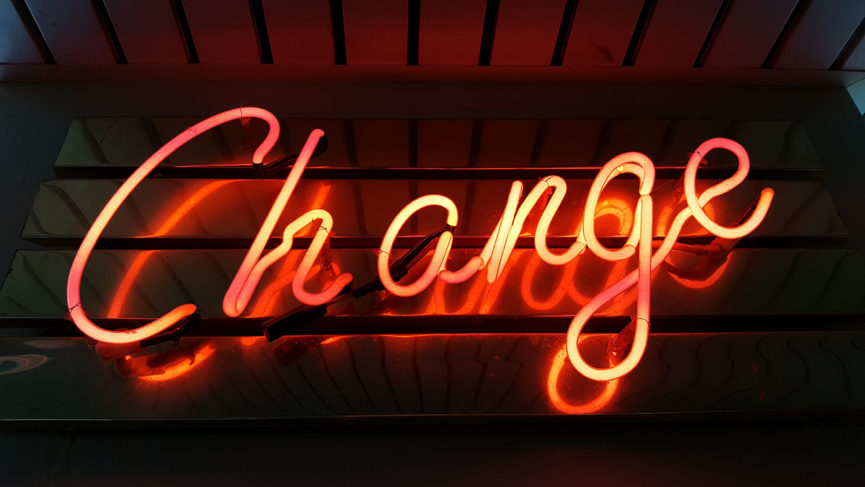Photo by Ross Findon on Unsplash
By now, if you are in the midst of pursuing your New Year goals, you may have observed one simple truth: change is hard. Pursuing your goals will require you to make several daily choices and adjust your lifestyle. Because of this, it will be good to be proactive about the daily discomforts of change. As they say, forewarned is forearmed!
As you read through these realities of change, think of how you would apply the recommendations given.
Change will be uncomfortable. Change means doing something different, and as such, people will almost always react with some degree of discomfort. In fact, if you don’t feel awkward when you’re trying something new, you’re probably not really doing anything differently — especially if you are to remove something in your life.
To move forward you must deal with this sense of loss. It may seem silly, but individuals need to be given a chance to mourn feelings of loss, perhaps just by taking time to talk with others about how they feel.
Also remember that you can only handle so much change. Although most everyone will experience some resistance to change, some people will be able to get excited about a change more immediately, while others will dread and resist doing anything differently for as long as they can. That’s why you need a clear plan and strategy for focusing your energy on the few things that will get you the greatest results in terms of desired behaviors.
You will be concerned about having enough resources. But don’t worry; sometimes you’re just paranoid and not looking well enough. Be responsible and realize that you just need to be resourceful. Look around you and maximize your resources. Thus you’ll need to focus energy to get more done with fewer resources rather than to get more (and sometimes less) done with more resources.
If you take the pressure off yourself, you may find yourself reverting back to your old behavior. Relapse is not the problem. Often when we revert back to old behaviors, we simply ignore that all we have learned, and worse, we quit. For change to be lasting, it must be self-perpetuating.
For example, if the diet you’ve decided to adopt requires you to give up your favorite food and some of your meal staples, what compelling reasons would you have to stick to it? You have to decide on these early on for you to overcome the temptation to give in to your cravings. You would need to be very convinced of its health benefits and your utter need for it to make such a big shift in your daily diet and in your taste preferences. You would need to educate yourself on what you are putting your body through if your diet will involve a lifestyle change. In the same way, when you adjust your spending on your road towards financial freedom, that goal has to be ever before you for you to persist. You’ll need to increase your knowledge about why you are adopting the change until it affects your attitudes, will, and behavior.
Make sure the necessity, relevance to you, and value of the change you are striving for remain in the foreground of your efforts so that you do not lose heart midway.
Related Posts
-
Make Things Happen to Stay the Course
In pursuing any lasting change in our lives, we need to change our minds first.…
-
Finding Life After Death
For many parents, nothing, not even the thought of our own death, can match the…
-
Parenting the Digital Generation
Being connected through technology may make sense, but the human heart will always long for…

Boris Joaquin is a corporate trainer, executive coach and consultant, and is president and co-founder of Breakthrough Leadership Management Consultancy. He describes himself as one “saved by God’s grace, and loved for a lifetime by his wife Michelle and admired by his two daughters Ysobel and Julia.”
Related Posts
-
Make Things Happen to Stay the Course
In pursuing any lasting change in our lives, we need to change our minds first.…
-
Finding Life After Death
For many parents, nothing, not even the thought of our own death, can match the…
-
Parenting the Digital Generation
Being connected through technology may make sense, but the human heart will always long for…




